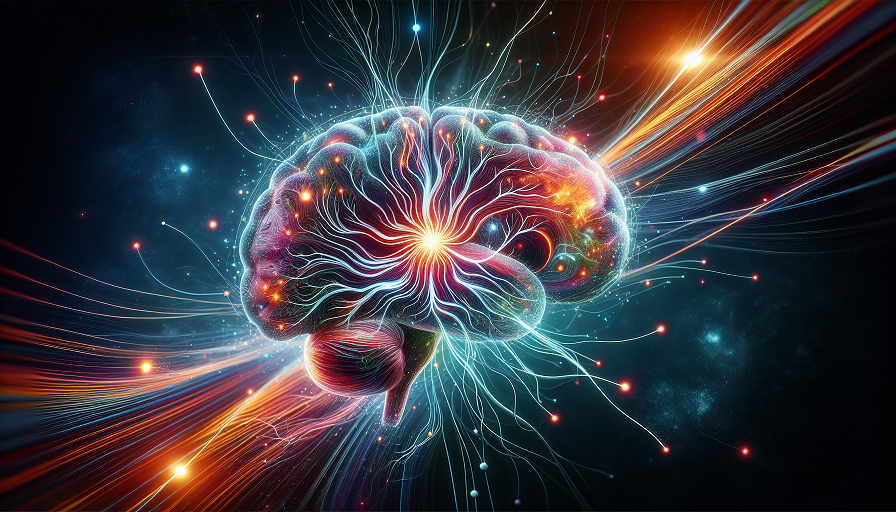
Alcohol is a widely consumed substance that affects the brain in complex ways. While moderate drinking is often considered socially acceptable and even beneficial in some contexts, excessive alcohol use can have profound consequences on brain health. One of the most concerning effects is its impact on neuroplasticity — the brain’s ability to adapt, grow, and reorganize.
Contents
What Is Neuroplasticity?
Neuroplasticity refers to the brain’s capacity to reorganize itself by forming new neural connections or strengthening existing ones. This adaptability allows for learning, memory formation, skill acquisition, and recovery from brain injuries. Neuroplasticity is essential for cognitive flexibility and emotional resilience, but it is highly sensitive to lifestyle factors, including alcohol consumption.
While the brain maintains some level of plasticity throughout life, alcohol can interfere with the processes that underpin this adaptability, particularly in key brain regions like the hippocampus and prefrontal cortex.
How Alcohol Affects Neuroplasticity
Alcohol consumption influences neuroplasticity in several ways, depending on the amount, frequency, and duration of use. Here’s a closer look at the mechanisms through which alcohol impacts the brain’s adaptability:
Disruption of Synaptic Plasticity
Synaptic plasticity is the process by which neurons strengthen or weaken their connections based on activity. This process is crucial for learning and memory. Alcohol interferes with synaptic plasticity by altering the balance of neurotransmitters like glutamate and GABA:
- Glutamate Suppression: Alcohol inhibits the excitatory neurotransmitter glutamate, which is essential for long-term potentiation (LTP), a process critical for learning and memory formation.
- GABA Enhancement: Alcohol enhances the inhibitory neurotransmitter GABA, leading to sedation and impaired cognitive function.
Over time, these disruptions weaken neural connections, impairing the brain’s ability to adapt and learn.
Impaired Neurogenesis
Neurogenesis, the growth of new neurons, primarily occurs in the hippocampus, a region involved in memory and learning. Studies show that chronic alcohol use reduces neurogenesis, leading to a smaller hippocampal volume and diminished cognitive flexibility.
This reduction in neurogenesis can have long-term consequences for memory consolidation and the ability to adapt to new information or experiences.
Increased Neuroinflammation
Alcohol consumption triggers the release of pro-inflammatory cytokines in the brain, leading to neuroinflammation. Chronic inflammation damages neurons, disrupts synaptic plasticity, and impairs the brain’s ability to repair itself. Neuroinflammation is particularly harmful to the hippocampus and prefrontal cortex.
Oxidative Stress and Cellular Damage
Alcohol generates free radicals, leading to oxidative stress and damage to brain cells. This oxidative damage can impair mitochondrial function, further disrupting the energy supply required for neuroplasticity.
Alteration of Brain-Derived Neurotrophic Factor (BDNF)
BDNF is a protein that supports the growth and survival of neurons and plays a key role in neuroplasticity. Alcohol consumption reduces BDNF levels, impairing the brain’s ability to form and maintain neural connections.
Short-Term Effects of Alcohol on the Brain
Even short-term alcohol consumption can affect neuroplasticity, particularly in terms of memory and cognitive function. Common short-term effects include:
- Impaired Memory: Alcohol disrupts the consolidation of short-term memories into long-term storage, leading to blackouts or fragmented recollection.
- Reduced Focus and Decision-Making: The prefrontal cortex, responsible for executive functions, is particularly sensitive to alcohol, resulting in poor judgment and impulsivity.
- Motor Coordination Issues: Alcohol affects the cerebellum, impairing motor skills and balance.
Long-Term Effects of Alcohol on Neuroplasticity
Chronic alcohol use has more severe and lasting effects on neuroplasticity. These include:
- Cognitive Decline: Long-term alcohol use is associated with reduced brain volume and impaired memory, learning, and problem-solving abilities.
- Increased Risk of Neurodegenerative Diseases: Alcohol-related brain damage can increase the likelihood of conditions like Alzheimer’s disease and dementia.
- Emotional Dysregulation: Alcohol alters neural pathways involved in emotional regulation, increasing the risk of anxiety, depression, and mood disorders.
- Wernicke-Korsakoff Syndrome: Chronic alcohol abuse can lead to a severe thiamine deficiency, resulting in memory loss and cognitive impairments.
Can Neuroplasticity Recover After Alcohol Use?
The good news is that the brain has a remarkable capacity for recovery, even after alcohol-related damage. While the extent of recovery depends on factors like age, duration of alcohol use, and overall health, several strategies can support neuroplasticity during recovery:
Abstinence from Alcohol
The most important step is to stop drinking. Studies show that abstinence allows the brain to begin repairing damaged neural pathways and recovering lost volume, particularly in the hippocampus.
Physical Exercise
Regular aerobic exercise boosts BDNF levels, promotes neurogenesis, and reduces inflammation, creating an environment conducive to neural repair.
Healthy Diet
A diet rich in antioxidants, omega-3 fatty acids, and essential vitamins supports brain health and combats oxidative stress. Foods like berries, salmon, nuts, and leafy greens are particularly beneficial.
Cognitive Rehabilitation
Engaging in activities that challenge the brain, such as puzzles, language learning, or music, can stimulate neuroplasticity and rebuild cognitive function.
Stress Management
Chronic stress impairs neuroplasticity, so incorporating stress-reduction techniques like mindfulness, meditation, or yoga can support brain recovery.
Alcohol’s Impact on Brain Adaptability
Alcohol has a significant and often negative impact on neuroplasticity, affecting memory, learning, and emotional resilience. While short-term use may seem harmless, chronic alcohol consumption can lead to lasting cognitive and emotional challenges by disrupting the brain’s adaptability.
However, the brain is resilient. By reducing or eliminating alcohol use and adopting brain-healthy habits like exercise, a nutritious diet, and cognitive engagement, you can support neuroplasticity and promote recovery. Understanding the relationship between alcohol and neuroplasticity empowers you to make choices that enhance your brain’s potential, ensuring better cognitive and emotional health for years to come.

